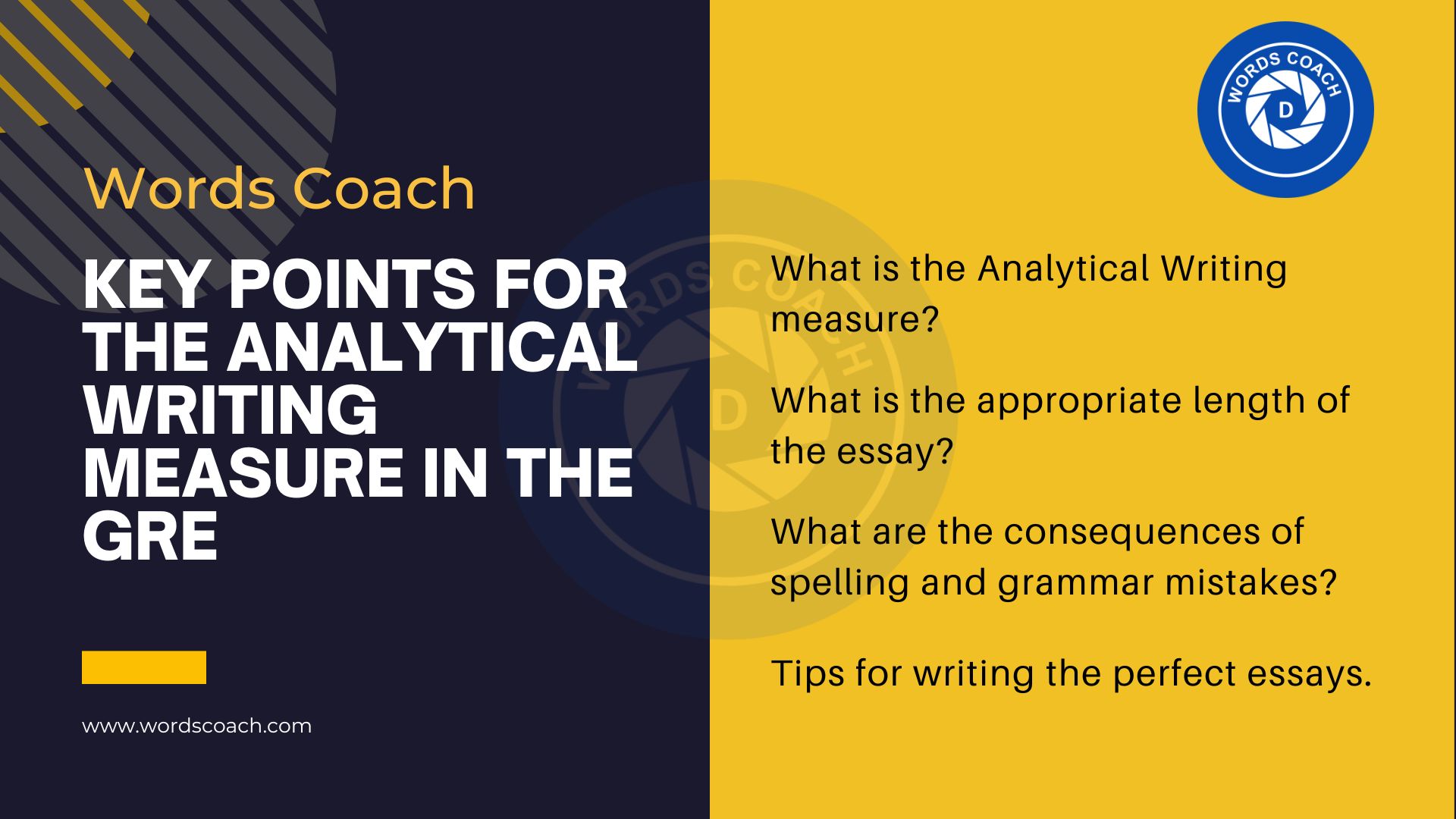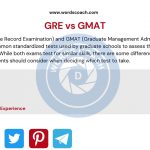Key points for the Analytical Writing Measure in the GRE
Most of the individuals who are preparing for the GRE test belittle the Analytical Writing (AWA) section of the test. They typically plan to work upon this area just several days before the test date. Never make such mistakes. This section is similarly imperative as other sections. Mainly essays are more important to the students whose first language is not English. In spite of the fact that it relies upon the school and the course you are applying for. Some probably won’t care about the high score in this area and some may mind. Thus, read Key points for the Analytical Writing Measure in the GRE and decide it yourself to work upon it
What is the Analytical Writing measure?
In the first place, analytical writing is not a multiple-choice exam; it is a critical thinking section where you will have to write two types of essays. You will have 30 minutes each for both of the essays. Which two sorts of essays are these?
1. Analyze an Issue Task:
This task provides a brief quotation on an issue of general interest and instructions on how to respond to the issue. You will have to write it from your perspective, making use of historical events, relevant hypothetical situations, etc. You have to develop your own argument in response to the prompt.
2. Analyze an Argument Task:
The argument task comprises a short argument that may or may not be complete and specific instructions on how to evaluate the argument’s strength. You will assess the argument’s cogency, analyze the author’s reasoning, and evaluate the lack of evidence. In this task, you evaluate the argument presented in the prompt.
ETS, the maker of GRE tells that Analytical writing tests your ability to think and write spontaneously is more important than you do for the Statement of Purpose (SOP). Since the essay you write under the exam environment is guaranteed to be your own work.
How is the score calculated for AWA?
Essays are being scored in the range of 0 to 6 bands. First it is assessed by the human reader and afterward it will be checked by a computer program called e-rater. From the average of both, the absolute band is announced. You can refer the official scoring guides of ETS for the Issue and Argument tasks, which is available at
Issue Scoring Guide
Argument Scoring Guide
Score Level Descriptions
What is the appropriate length of the essay?
The length of the essay does matter in the test. Conventionally, surmise about a five-passage structure as a pattern for each essay. Sometimes it may happen that you end up with the 6 or 7 paragraphs. In any case, the fundamental structure is an introduction, instances, or reasons in the middle of and finally the conclusion. Please make sure that your ideas are not redundant. Spend 2-3 minutes, in the first place, to assemble a structure of your essay and furthermore save 2-3 minutes in the end to proofread your essay.
What are the consequences of spelling and grammar mistakes?
Finer grammar and spellings are always better than poor grammar and spelling. However, you should be more focused on your ideas first. Be that as it may, a writer may lose a whole band if the spelling and punctuation mistakes mirror the poor establishment of language or meddle with the importance of review. For the most part a mistake-free essay will clearly get an incredible score! Predominantly, your thoughts should be perspicuous to the evaluator.
Tips for writing the perfect essays:
- The introduction of an essay should be the summary of the prompt and the conclusion should comprise the summary of your primary idea related to the prompt.
- While writing the argument essay, do not legitimately attack the person and the evidence. You are asked to critically examine the argument and find the flaws with the given weak argument.
- Use the transition words to make your essay nicely connected. For instance, you can utilize these words: Besides, As well as, Furthermore, Likewise, Consequently, Hence, Otherwise, However, Nevertheless, Subsequently, Similarly, In spite of, moreover, etc.
- Make sure you write up to two or three real-world examples. And also make sure that your examples are relevant to the topic.
- You ought to abstain from writing in the first person. “I” should not be included while writing both the essays.
- In the issue essays, make up your mind on which side are you on and try to defend that position throughout the passage.
- Read more and more sample essays to expand thoughts on various topics.
- Write at least five practice essays in both the categories and get it checked by your mentor or an expert. And spend some time to evaluate those mistakes. Those errors won’t just assist you with envisioning them later on however will likewise make your essay clearer in the future.
The next question arises from where I can find the sample topics for practicing the AWA section. ETS has lots of practice question pools on its official website. Here, is a link to that:
Pool of Issue Topics
Pool of Argument Topics
We hope reading Key points for the Analytical Writing Measure in the GRE, helps you score better in AWA section.
Hope it helps!! Happy Learning
Written by,
Jaini Bhavsar (There’s always room for bliss.)
24th May 2020
Connect with me on LinkedIn
Download the Word Coach Application
FAQ’s
What are the key components of the GRE Analytical Writing Measure (AWM)?
Task 1: Analyze an issue and argue both sides objectively.
Task 2: Analyze an argument and identify its strengths and weaknesses.
Focus on critical thinking, reasoning, and written communication skills.
Scored on a scale of 0-6, with 6 being the highest.
What are the biggest challenges in the AWM?
Time pressure: You have 30 minutes for each task.
Complex argument analysis: Identifying subtle flaws and strengths can be demanding.
Maintaining a neutral tone in Task 1: Presenting both sides objectively can be tricky.
Effective writing skills: Clear, concise, and well-organized writing is crucial.
How can I best prepare for the AWM?
Familiarize yourself with the format and task types.
Practice writing essays under timed conditions.
Analyze sample essays and identify successful strategies.
Strengthen your critical thinking and argument analysis skills.
Focus on grammar, vocabulary, and sentence structure.
What are some common mistakes to avoid in the AWM?
Rushing through the tasks: Allocate time strategically for planning and writing.
Not staying neutral in Task 1: Avoid expressing personal opinions or biases.
Focus only on identifying flaws in Task 2: Acknowledge strengths along with weaknesses.
Poorly structured arguments: Ensure a clear and logical flow of ideas.
Grammatical errors and unclear writing: Proofread carefully for mistakes.
Are there any resources available to help me prepare for the AWM?
Official ETS GRE materials: Practice tests, guides, and video tutorials.
Prep courses and online study guides: Specialized content and strategies for the AWM.
Books and websites with sample essays and analysis tips.
Tutoring services for personalized guidance and feedback.










Very good information. Lucky me I found your site by accident (stumbleupon).
I’ve saved it for later!
Hello There. I found your blog using msn. This is a really well written article.
I will make sure to bookmark it and return to
read more of your useful information. Thanks for the post.
I’ll certainly return.